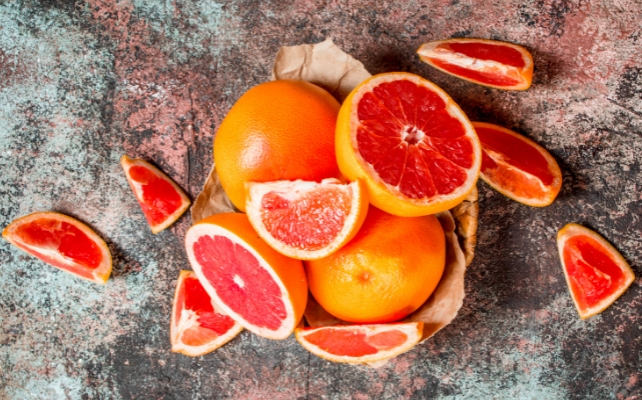Humans are soft squishy bags of blood that are fairly resilient in many ways, but there are a lot of hazards out there that can cause serious problems, if we're not careful.
And they don't always announce themselves, either. Sometimes the most benign appearance can hide potential dangers. Take the grapefruit juice you might be enjoying with your morning meal. For most people, it's delicious, reasonably healthy, and full of vitamins and minerals.

Mix it with the wrong medication, though, and grapefruit is potentially fatal.
A growing body of research has shown two members of a class of chemical compounds called furanocoumarins that are found in high concentrations in grapefruit can reduce or enhance the uptake of certain drugs. This results in dangerously low – or, as is more often the case, dangerously high – levels of those drugs in the system.
The two drug-interacting furanocoumarins are not just in grapefruits, either. The compound bergamottin can also be found in pomelos and bergamot oranges, and dihydroxybergamottin in pomelos and Seville oranges, the latter of which is often used to make marmalade. (Grapefruits are the result of a pomelo-orange hybrid.)
As pharmacologist Shiew Mei Huang of the FDA explained, "the juice lets more of the drug enter the blood… When there is too much drug in the blood, you may have more side effects."
Here's how it works. Your body produces an enzyme called Cytochrome P450 3A4 (or CYP3A4), mainly in the liver and small intestine. This enzyme helps your body break down small foreign molecules, such as toxins or drugs, so that you can flush them out. It plays a crucial role in the metabolization of many drugs.

Furanocoumarins interfere with your body's ability to produce or effecetively use CYP3A4 (and other members of the cytochrome P450 enzyme family). Just a single glass of grapefruit juice can interfere with CYP3A4, and repeated consumption reduces CYP3A4 liver activity.
This, in turn, interferes with your body's ability to metabolize certain oral drugs. More of the drug enters your blood, and it stays in your body for longer, producing an overdose effect even when you have taken the right dosage. And the types of drugs implicated are wide-ranging, from cholesterol and blood pressure medication, to cancer drugs, to anti-anxiety medication.
The results of this can be pretty dramatic. Rapid heartbeat, breakdown of muscle tissue, bone marrow toxicity, shortness of breath, gastrointestinal bleeding, and kidney failure are all complications of some of the medications that are affected by furanocoumarins.
And, in extreme but also seemingly rare cases, these interactions can be fatal.
With some medications, grapefruit can have the opposite effect. With fexofenadine, for example – an antihistamine – consumption of grapefruit reduces the efficacy of the medication. Although the potential side effects aren't as severe, it's certainly not ideal to suddenly find your allergy medication not as effective as you need it to be.

If you're taking important medication, you don't necessarily need to avoid grapefruit like you're a vampire and grapefruit is holy water. But do ask your doctor or pharmacist if you need to be aware of any potential interactions, and make sure you read any information provided with your medication.
And maybe just reach for a glass of water to wash it down.
